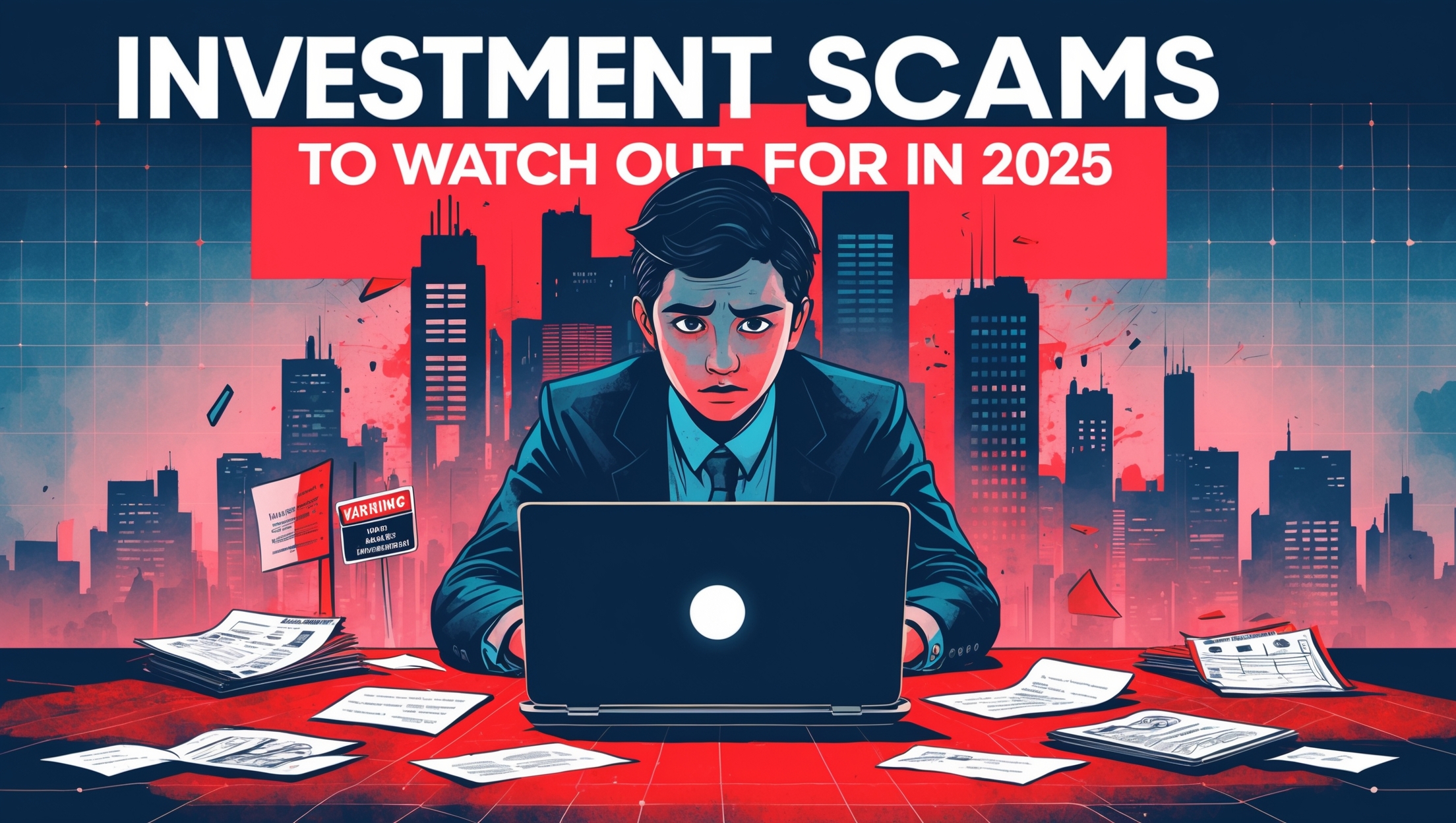How to Protect Your Money in a Year of High-Tech Deception
In an era of economic uncertainty, AI-driven tools, and growing interest in personal finance, more people are investing than ever. But with increased participation comes a new wave of investment scams, now more sophisticated, convincing, and digitally embedded than before.
In 2025, scammers are capitalizing on new technologies, fake platforms, and psychological manipulation to con even the savviest investors. This article will guide you through the most common investment scams of the year, how to recognize them, and, most importantly, how to protect your money.
1. AI-Generated Influencers and “Expert” Endorsements
In 2025, AI influencers have flooded platforms like TikTok, Instagram, and YouTube. Many appear indistinguishable from real humans, offering confident investment advice or promoting specific crypto tokens, trading platforms, or apps.
The Red Flag:
They never disclose credible qualifications, and their advice often lacks transparency or promotes a “once-in-a-lifetime opportunity.”
Protect Yourself:
- Always verify investment advice with human experts or regulated financial institutions.
- Don’t trust endorsements from unknown influencers, especially those without a clear track record or regulatory compliance.
- Use FINRA’s BrokerCheck or the SEC’s Investment Adviser Public Disclosure website to validate people or companies.
2. Fake “Green” or ESG Investments
As interest in sustainable investing grows, fraudsters are offering fake green bonds, ESG funds, and climate-related startup opportunities. They lure investors with promises of high returns and environmental impact.
The Red Flag:
“Guaranteed impact and guaranteed returns.” Real ESG investments are volatile and take time to mature—scams push emotional urgency.
Protect Yourself:
- Research any “green” company before investing. Check if it’s registered or certified by credible ESG databases.
- Ask for documentation and third-party audits of impact claims.
- Beware of social media ads with vague sustainability promises and pressure to act fast.
3. Crypto and NFT Revival Scams
Despite the crash of many cryptocurrencies and NFTs in previous years, 2025 has seen a rebound in digital asset interest. Scammers have returned with token presales, AI-generated NFT art tied to fake artists, and decentralized exchanges with no oversight.
The Red Flag:
Promoters claim “the next Ethereum” or use FOMO (Fear of Missing Out) with time-sensitive offers. They often lack a whitepaper, codebase, or real team members.
Protect Yourself:
- Avoid projects that don’t have transparent documentation or code audits.
- Only use regulated crypto exchanges.
- Be cautious of any cold DMs or Telegram groups promising huge returns.
4. Deepfake Impersonation Scams
One of the most chilling developments in 2025 is the use of deepfakes to impersonate real financial experts or celebrities. These videos are often posted in fake Zoom webinars, YouTube ads, or social media stories.
The Red Flag:
You see someone like Warren Buffett or Cathie Wood endorsing a new ETF or fund—but only on suspicious channels, never through official media.
Protect Yourself:
- Verify any “announcement” on the official website or social accounts of the person or organization.
- Watch out for audio glitches or unnatural facial movements in the video.
- Don’t click links directly from social media posts or emails—go to the source manually.
5. Phishing in Disguise: Fake Investment Platforms
In 2025, phishing isn’t just bad emails. Scam websites and apps now look nearly identical to real ones. Victims often enter their personal and banking information into fake trading platforms or portfolio apps that steal credentials or money.
The Red Flag:
A small spelling error in a web address, or a “mirror” app in app stores with few reviews.
Protect Yourself:
- Bookmark verified platforms directly rather than using links from search engines or ads.
- Use multi-factor authentication on all investment accounts.
- Check reviews, developer information, and update frequency before downloading any finance app.
6. High-Yield “Private” Investment Clubs
In uncertain markets, people crave exclusivity. Scammers use private chat groups (on Discord, WhatsApp, etc.) to offer “insider” investments in real estate, pre-IPO startups, or crypto mining operations.
The Red Flag:
You’re invited to a VIP investment club promising above-average returns, limited access, and referral bonuses.
Protect Yourself:
- Be skeptical of secretive opportunities. If it’s not transparent, regulated, or open to questioning—walk away.
- Never transfer money via crypto or wire transfer without solid proof of legitimacy.
- Real private equity or pre-IPO deals involve due diligence, legal paperwork, and risk disclosures.
Final Thoughts: Stay Smart, Stay Skeptical
In 2025, investment scams are evolving faster than ever. They prey on urgency, emotion, and the appeal of quick wealth. But with knowledge, critical thinking, and a healthy dose of skepticism, you can stay ahead of the con artists.
Here’s your checklist to stay safe:
- Pause before investing. Urgency is a red flag.
- Research the company, platform, or person involved.
- Consult a licensed financial advisor if you’re unsure.
- Verify via official government databases and financial regulatory sites.
- Protect your devices with antivirus software and two-factor authentication.
Remember: if it sounds too good to be true—it probably is.





